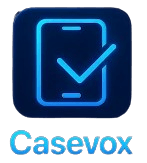National Management Recovery Debt Collection Harassment
Is National Management Recovery placing harassing calls to you? There other company names are Century, Liberty and Keystone.
They cannot make fake process service court threats to you over the phone of left on voicemail messages.
They cannot make lawsuit threats. Some debt collectors go as low as lying to consumers about debts and giving them false information. Harassment, using curse words and making threats are some practices that debt collectors engage in. It is essential that consumers in the context of National Management Recovery debt collection are aware of their rights when it comes to National Management Recovery debt collection.
You should know that laws like the Fair Debt Collection Practices Act protect you from harassment and unfair treatments like National Management Recovery corporation phone harassment. You can also send a cease and desist letter to stop further communication.
Debt collectors are also required to inform you about their data collection practices and your rights under various privacy laws.
Just because you owe money to National Management Recovery doesn’t mean that you have to put up with National Management Recovery phone harassment.
You have rights and if your rights under the FDCPA or any other federal law are tampered with through National Management Recovery phone harassment or any other form of harassment, you have a right to sue the representatives from National management corporation who violated your rights and you can get up to a $1,000 in statutory damages. Consumers can also file a lawsuit in district court if their rights are violated. You can also contact the attorney general for assistance in such cases.
Three main federal laws protect consumers from abusive debt collection. Agencies like National Management Recovery Corporation must follow these laws.
Is National Management Recovery a Scam?
According to the Better Business Bureau website, National Management Recovery has been in business since 2004. There have been 11 customer complaints filed. Read more about it here: National Management Recovery Better Business Bureau
Kia America, Inc. is responsible for providing Kia-branded vehicles and services in the United States, focusing on user interactions, privacy policies, and data collection practices associated with their services.
Who is National Management Recovery?
National Management Recovery is a third-party debt collector located in Coral Springs, Florida. They are committed to adhering to consumer rights in all their collection practices. Nmrc has been a party in federal court cases several times related to consumer credits and the collection thereof.
For customer service and support information, Kia Motors provides various contact methods, including phone numbers and email addresses, to reach their customer service, consumer affairs, and technical support teams.
Contact Information for National Management Recovery
Address: 5571 N University Dr Ste 203 Coral Springs, FL 33067-4653 Phone: (954) 255-7010 Fax: (954) 523-5273
For customer service inquiries, you can also contact KIA’s Consumer Assistance at 800 333.
NMRC Debt Collection Practices
NMRC, or National Mortgage Reconciliation Corporation, is a debt collection agency specializing in collecting debts related to mortgages and other financial obligations. Their debt collection practices involve contacting customers through various means, including phone calls, emails, and letters, to request payment on outstanding debts.
It’s essential to note that NMRC is a legitimate debt collection agency, and their practices are governed by the Fair Debt Collection Practices Act (FDCPA). This means they are required to follow specific guidelines when interacting with customers, including:
- Identifying themselves as debt collectors
- Providing clear information about the debt, including the amount and the creditor
- Not making false or misleading statements
- Not harassing or threatening customers
- Respecting customers’ requests to stop contact
If National Management Recovery Corporation continues to contact you after you have requested them to stop, you may consider sending a cease and desist letter.
If you’re being contacted by NMRC, it’s crucial to understand your rights and responsibilities. You can request validation of the debt, which means that NMRC must provide proof that the debt is legitimate and that you owe the amount they claim. You can also negotiate a settlement or payment plan with NMRC to manage your financial obligations more effectively.
Debt Harassment Laws That Protect You
Three main federal laws protect consumers from abusive debt collection. Agencies like National Management Recovery Corporation must follow these laws.
Fair Debt Collection Practices Act (FDCPA)
Passed in 1978, the FDCPA sets limits on what debt collectors can and cannot do.
Gives you the right to sue collectors like Recovery Management for harassment, threats, or illegal practices.
Protects surviving relatives: agencies cannot demand payment from family members of a deceased debtor (except in rare cases).
Family, friends, and relatives are considered third parties and are protected from abusive contact.
Always keep records of communications to protect your rights.
Telephone Consumer Protection Act (TCPA)
Passed in 1991, regulates phone calls, robocalls, texts, auto-dialers, and prerecorded messages.
Collectors cannot robocall your cell phone without consent.
Each illegal call may entitle you to $500 in damages—or $1,500 per call if harassment was intentional.
Overseen by the FCC and CFPB.
If you’ve received robocalls or texts from National Management, you may have grounds to sue.
Fair Credit Reporting Act (FCRA)
Enacted in 1970, regulates how agencies collect, use, and share your credit report information.
Protects your privacy, fairness, and accuracy.
Gives you the right to:
Verify the accuracy of reported debt
Receive notice if info on your report is used against you
Dispute errors and have them corrected by credit bureaus
Remove negative information after 6–7 years (10 years for bankruptcy)
Collectors cannot misrepresent your credit data.
If National Management Recovery misused your report, you may take legal action.
For immediate help, call our attorneys at (877)-700-5790. We can review your case, protect your rights, and stop harassment.
Can you get relief from your debt?
Debt relief as the name implies refers to approaches that help you deal with large debts. The aim of a debt relief program is to lift the crippling load of debt from you, create a payment plan that leaves both you and National Management Recovery satisfied, and reduces the hurt caused to your credit report.
Debt relief is especially for people who do not have the means to completely settle what they owe to collectors like Recovery Management. It is a way of making things easier for them. Debt relief programs can be particularly beneficial for individuals with limited income. There are various debt relief programs that work in different ways depending on the size of your finances and how much you owe. For instance, some individuals have found debt relief programs helpful when dealing with car-related expenses, such as maintenance and ownership costs.
Some debt relief programs include:
- Debt management: This helps if you do not know how to handle the debt and your finances yourself. A credit counselor can help guide you on how to effectively do that.
- Balance transfer credit card: This involves transferring your credit card debt to a low-interest credit card. This incurs some transfer fees.
- Debt consolidation: This refers to combing many small debts into one large one by taking one loan to settle other loans. This makes your focus more direct and you’re planning more organized. It further lowers the overall interest rate on all the loans.
- Consumer credit counseling: This is a program that provides assistance and guidance on consumer credit. They help debtors find a workable solution to their debt problem.
Better Business Bureaus (BBB) Complaints
The Better Business Bureau (BBB) is a non-profit organization that aims to promote trust and transparency in the marketplace. One of the ways they do this is by allowing customers to file complaints against businesses that have failed to meet their expectations.
If you have a complaint against a business, you can file a complaint with the BBB. The process typically involves submitting a written complaint, which will then be reviewed by the BBB. The BBB will then contact the business and attempt to resolve the issue. In some cases, you may also consider contacting the attorney general for further assistance.
Some common reasons for filing a complaint with the BBB include:
- Poor customer service
- Failure to deliver goods or services as promised
- Misleading advertising or sales practices
- Failure to honor warranties or guarantees
When filing a complaint with the BBB, it’s essential to provide as much detail as possible, including:
- The name and address of the business
- A clear description of the issue
- Any relevant documentation, such as receipts or contracts
- Your desired resolution
By providing comprehensive information, you increase the chances of a satisfactory resolution to your complaint.
Debt Validation and Settlements
Debt validation is the process of verifying the legitimacy of a debt. This can be an essential step in resolving debt disputes, as it ensures that the debt is accurate and that you owe the amount claimed.
If you’re being contacted by a debt collector, you have the right to request debt validation. This typically involves sending a written request to the debt collector, asking them to provide proof of the debt. The debt collector must then provide documentation, such as:
- A copy of the original contract or agreement
- A statement showing the balance and any interest or fees
- Proof of ownership of the debt
Once the debt is validated, you may be able to negotiate a settlement or payment plan with the debt collector. If the debt collector continues to contact you after validation, you can send a cease and desist letter to stop further communication. A settlement involves paying a lump sum that is less than the full amount of the debt, while a payment plan involves making regular payments over time.
When negotiating a settlement or payment plan, it’s essential to:
- Understand the terms and conditions of the agreement
- Ensure that the agreement is in writing
- Make timely payments to avoid further collection activity
By taking these steps, you can manage your debt more effectively and avoid further complications.
Steps to End the Harassment from National Management Recovery
If you have endured harassment (such as the use of obscene language, threats of violence, harassing text messages, publicizing your debt, etc.) during your calls with a known NMRC phone number, you will be glad to know that there are certain steps you can take to end the harassment from NMRC collections.
When contacting customer service for vehicle-related issues, such as roadside assistance, make sure to navigate the phone menu options carefully to reach the appropriate support.
They are outlined below:
- Write a cease-and-desist letter, or get an attorney to do it for you
You are permitted under the law to write a letter to National Management Recovery Corporation, requesting that they stop calling you and cease the harassment. You can use one of the sample letters provided by the CFPB for this purpose, or better still, consult with a qualified attorney.
National Management Recovery is obligated, according to law, to comply with your request, and if they fail to do so, you are allowed to pursue further legal action.
Keep in mind that a cease-and-desist letter does not release you of the responsibility for the debt; you still have to pay it.
- Keep records of everything
Keep records of all the illegal behavior you have experienced at the hands of National Recovery Services. All unfair debt collection practices should be documented immediately for future use.
If you have a witness present during the harassing phone calls or communications that you received, it may also come in very handy.
You may also record your phone conversations with your debt collector. Just be sure to check with your state’s laws first to ensure that it is legally admissible in court.
3. Report to the FTC
You can complain to the Federal Trade Commission about the harassment you have endured from National Management Corporation, either by calling them or through their online portal. You can also report the issue to the for additional support and guidance.
Your complaint should contain:
- Name and address of the collection agency
- Details of the original creditor
- Notes you have gathered about the harassment
- Names of any witnesses
- Copies of any other material that will serve as evidence of harassment
- Contact your State’s Attorney General
Sending a complaint to your state’s Attorney General to stop the harassment is also a good idea. Be sure to also send copies of this complaint to the collection agency and the original creditor.
Depending on the severity of the situation and the nature of the debt collection agency, they may agree to negotiate more favorable terms with you instead of facing the wrath of the law.
- Get an attorney on your case
Another option available to you is to sue the debt collector for harassment one year from the time the debt collector violated the FDCPA laws.
If you win the case, you will be awarded up to $1,000, in addition to your attorney’s fees and other costs. You may also be compensated for the cost of any actual damages that you can prove.
In all of this, remember that your debt is still valid, and even if you are able to prove a valid case of harassment against Recovery Service Management, you will still be required to pay it.
More information about National Management Recovery
National management recovery corporation* is a fully licensed third-party collection agency. With headquarters in Coral Springs, Florida, Recovery corp collection agency specializes in the collection of delinquent third-party debts.*
Similar to how a Kia dealership operates as an independent company authorized to sell Kia-branded vehicles, parts, and accessories, National Management Recovery functions independently within its own network.
Receiving calls from NMRC? If you are receiving calls from National Management Recovery, then it could be for either one of two things:1. It is either you owe money to an original creditor and National Management Recovery has been hired to collect the debt or2. The debt has been sold to National Management Recovery; thus, National Management Recovery is now completely in charge of the recovery process.
If the debt has not been sold to National Management Recovery yet, then you still have the option of calling your original creditor to work out a favorable repayment plan. However, if the debt is now fully owned by National Management Recovery, then you have no better option than to sit down with them and work out a favorable repayment plan.
If you are being harassed in your communications with National Management Recovery, then we strongly advise that you file a complaint with the CFPB, or that you contact a qualified consumer rights attorney to help you stop the harassment that you may currently be receiving from National Management Recovery
If you are not sure of the name of the collection agency that is contacting you than feel free to visit our list of collection agencies List of Collection Agencies in United States Consumer Rights Law Firm PLLC (consumerlawfirmcenter.com).
National Management Recovery Phone Numbers
Are you receiving any harassing phone calls from any of these numbers?
954-255-7010, 888-220-2068, 903-716-7091, 855-659-1346, 877-423-2652, 855-659-1346, 903-716-7091, 888-220-2068, 954-282-6140, 954-255-7010, 855-269-3059, 877-361-6816, 512-368-8531, 844-499-744, 954-757-8012, 844-339-5638, 855-280-6142, 913-715-3440, 317-612-6902, 256-203-8491, 888-220-2068, 833-206-6896, 844-546-3163, 608-467-5561, 855-246-5850, 800-250-6536, 877-640-7958, 855-439-1801, 913-871-4312, 505-835-1502, 855-523-0529, 888-220-2068, 855-200-6046, 888-220-2068, 888-529-5289, 888-220-2068, 855-677-4492, 844-411-7890, 855-407-0319, 866-232-1304, 954-743-4019, 844-543-3358, 512-368-8531, 855-235-6018, 214-653-7099, 844-499-1744, 954-757-8012, 844-339-5638, 855-280-6142, 913-715-3440, 317-612-6902, 256-203-8491, 844-780-0961, 855-200-6046, 888-220-2068, 888-220-2068, 833-206-6896, 844-546-3163, 608-467-5561, 855-246-5850, 800-250-6536, 844-546-3163, 803-832-2446, 855-407-0305, 855-659-1346, 877-640-7958, 855-439-1801, 954-757-8012, 855-246-5850, 913-871-4312, 844-455-1333, 505-835-1502, 855-523-0529, 888-220-2068, 844-543-3358, 954-743-4019, 855-407-0319, 866-232-1304, 844-499-1744, 888-220-2068, 855-677-4492, 844-411-7890, 855-677-4492, 888-529-5289, 844-546-3163, 877-455-9636, 833-742-0711, 337-546-0044, 956-267-7715, 956-645-6806, 844-454-5236, 855-218-3098, 855-458-3127, 860-566-9677, 954, 255-7010, 888-220-2068, 225-217-0773, 855-458-3127, 417-580-0786, 855-458-3126, 208-207-9012, 855-659-1346, 855-809-7138, 855-269-3059, 877-361-6816, 888-220-2068, 954-255-7010, 954-282-6140, 855-921-5609, 855-410-5358, 855-809-7138, 855-410-5420, 855-809-7486, 786-724-3626, 888-315-4772, 214-586-0957, 833-637-0263, 800-219-0771,866-384-1689, 469-640-0027, 716-314-1571, 877-358-6895, 855-659-1346, 956-633-1223
If so, you may be a victim of National Management Recovery debt collection harassment. Call us now at 877-700-5790.
When visiting our website, you can find more information on how to handle such harassment and protect your rights.
The following is a sample list of complaints filed against National Management Recovery in 2018 & 2019 and can be found on Pacer.org.
6:19-cv-00047-ADA-JCM Yates v. Hartford Casualty Insurance Company et al
2:18-cv-08454-JTM-MBN Walton v. National Management Recovery Corporation et al
3:18-cv-01285-RDP Malone v. National Management Recovery Corporation
1:18-cv-05280 Venters v. National Management Recovery Corp.
0:18-cv-60802-JEM Caldwell v. National Management Recovery Corp
CONSUMER RIGHTS LAW FIRM, PLLC
is a law firm that specializes in helping clients who are facing harassment from debt collectors. If you suspect that your debt collection rights are being trampled upon, contact our office to begin the process to stop the harassment you may currently be receiving from NMRC. Our office has been assisting consumers since 2010, and we have an A+ rating with the Better Business Bureau.
Call us at 8003334542 for immediate assistance.
Check out the links below for more information:
Can Debt Collectors Sue Me or Garnish My Wages?
Yes, debt collectors, including National Management Recovery Corporation, can sue consumers to collect outstanding debts. If a debt collector wins a court judgment against you, they may be able to garnish your wages or bank accounts to recover the owed amount. You may also consider sending a cease and desist letter to stop further communication from the debt collector. However, this process involves specific legal procedures and guidelines that must be followed.
Before a debt collector can garnish your wages, they must first file a lawsuit and obtain a court judgment. This means you will receive a notice of the lawsuit and have the opportunity to respond. It’s crucial to take this notice seriously and seek legal advice to understand your rights and options.
If you are being sued by a debt collector, you may be able to negotiate a settlement or payment plan to avoid a court judgment. Open communication with the debt collector can sometimes lead to a more manageable resolution.
It’s important to note that debt collectors are prohibited from making empty threats to sue or garnish wages. If a debt collector is making such threats without intending to follow through, this is a violation of the FDCPA. Consumers should report these violations to the FTC or their state’s Attorney General’s office.
Additionally, you can file a complaint with the (CFPB) if you believe a debt collector has engaged in unfair or deceptive practices. The CFPB can investigate your complaint and take action against the debt collector if necessary.
Facing a lawsuit from a debt collector can be daunting, but understanding your rights and seeking legal advice can help you navigate the situation more effectively. Remember, you have protections under the law, and there are resources available to assist you.
Getting Help with Debt Collection Harassment
If you’re being harassed by National Management Recovery Corp or any other debt collector, there are steps you can take to get help. Here are some options:
- Contact a Consumer Law Attorney: A consumer law attorney can help you understand your rights and options for dealing with debt collection harassment. They can also represent you in court if necessary.
- File a Complaint with the Federal Trade Commission (FTC): The FTC is responsible for enforcing the Fair Debt Collection Practices Act (FDCPA), which prohibits debt collectors from engaging in abusive and harassing behavior. You can file a complaint with the FTC online or by calling 1-877-FTC-HELP (1-877-382-4357).
- Contact Your State Attorney General’s Office: Your state Attorney General’s office may also be able to provide assistance with debt collection harassment. They may be able to help you file a complaint or provide guidance on how to deal with debt collectors.
- Reach Out to a Non-Profit Credit Counseling Agency: Non-profit credit counseling agencies, such as the National Foundation for Credit Counseling (NFCC), can provide you with free or low-cost advice on how to manage your debt and deal with debt collectors.
- Keep a Record of Harassment: Keep a record of any harassment you experience from debt collectors, including dates, times, and details of what was said. This can be helpful if you need to file a complaint or take legal action.
Remember, you have rights when it comes to debt collection, and there are laws in place to protect you from harassment and abuse. Don’t be afraid to reach out for help if you’re being harassed by a debt collector.
Additional Resources
- National Foundation for Credit Counseling (NFCC): 1-800-388-2227
- Federal Trade Commission (FTC): 1-877-FTC-HELP (1-877-382-4357)
- Your state Attorney General’s office:
FAQs
Who is National Management Recovery Corporation and why are they contacting me?
National Management Recovery Corporation (NMRC) is a third-party debt collector based in Coral Springs, Florida, that contacts individuals about alleged past-due debts they’ve purchased or are collecting on behalf of creditors.
Is National Management Recovery Corporation a legitimate debt collector or a scam?
They are a legitimate debt collection agency founded in 2004 and accredited by the BBB, but you should always request written validation of any debt to ensure it’s valid and avoid scams.
Can NMRC legally harass me with multiple phone calls?
No. Under the FDCPA, they cannot engage in harassment or abuse—such as repeated calls, constant threats, or contacting your place of employment after being told not to.
What steps should I take if NMRC keeps calling me?
Document each call (date, time, content), send a written cease-and-desist letter, request debt validation, and if calls persist, file complaints with the CFPB, FTC, or consult a consumer rights attorney.
Can I sue NMRC for debt collection harassment?
Yes. If they violate the FDCPA, TCPA, FCRA, or state laws, you may be entitled to statutory damages (up to $1,000 under FDCPA, $500–1,500 per illegal robocall under TCPA) and legal costs.
Does NMRC use robocalls or spoofed phone numbers?
Many consumers report calls from different numbers and robocalls. If they call without prior consent using automated systems, they may be breaking federal law under the TCPA.
Can NMRC hurt my credit score?
Yes. They can report debts to credit bureaus, potentially damaging your credit. You have the right to dispute any inaccuracies through the credit reporting agencies.
Can I negotiate a settlement with NMRC?
Yes. You can request validation, then negotiate to settle for less, ask for “pay-for-delete” agreements, and ensure any settlement and reporting terms are documented in writing.
Can NMRC sue me or garnish my wages?
They can only sue or garnish wages if they first file and win a lawsuit against you. Without a court judgment, they cannot garnish your wages.
How do I make NMRC stop contacting my family or workplace?
Under the FDCPA, they cannot discuss your debt with anyone except you, your spouse, or your attorney. If they contact third parties, document it and include it in legal complaints.







